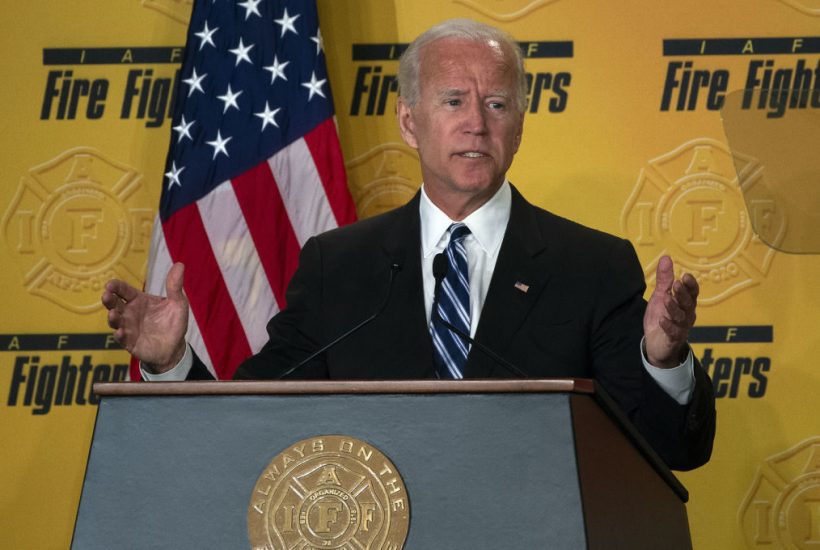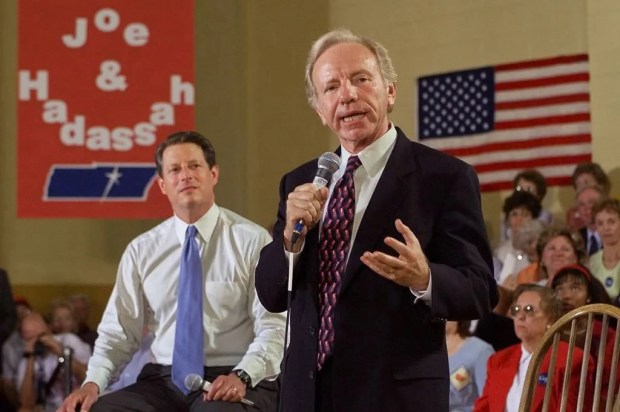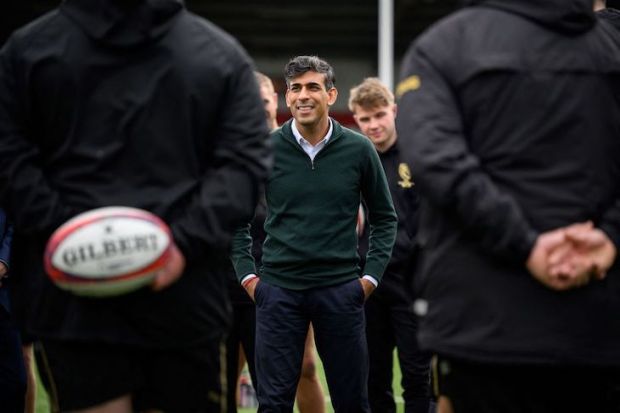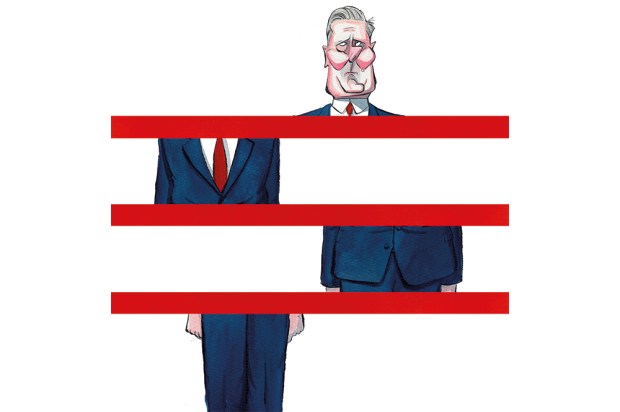Joe Biden seems on the verge of announcing he will run for president. He begins in a strong position, leading his primary opponent in the polls. His numbers, which are just shy of 30 percent, reflect his high name-ID and years as a party stalwart. When he does jump in, the first question is whether his lead will grow or shrink as competitors begin attacking his record and garner name recognition of their own.
Biden must smack his head every time he thinks about 2016. He would have been a stronger candidate than Hillary — not a very high bar — which means he might well have won the presidency. That’s far less likely this time around, and not only because Donald Trump has the advantages of incumbency and smooth sailing through the primaries. It’s also because Biden is no cinch to win the Democratic nomination.
Within the party, Biden holds three huge advantages, three disadvantages, and one major question mark. Let’s sort them out.
Two of his advantages are obvious: his association with President Barack Obama and his ability to relate to blue-collar voters. Although the party has moved left since Obama’s day, the former president is still the most popular Democrat, by far. That helps Biden since he is the candidate most closely associated with Obama. That’s a big f***ing deal, as Joe would put it. He also benefits from Obama’s legacy as a proven national winner.
A second major asset is Biden’s appeal to blue collar voters, especially in swing states from Pennsylvania to Wisconsin. Those voters loathed Hillary Clinton. They won’t warm to Kamala Harris, Elizabeth Warren, Kirsten Gillibrand, and other poster children for the party’s coastal elites. One huge problem for Biden, however, is that those elites in Manhattan, Beverly Hills, Ann Arbor, and Madison — and their like-minded friends — dominate the party primaries and its fundraising. The very reasons Biden appeals to Scranton damn him in San Francisco.
Few have noticed Biden’s third advantage, but it is very real. He is a ‘happy warrior.’ It’s more than his folksy style, though that surely helps. It’s his obvious relish for the campaign trail, something he shares with Trump. Even when Biden is angry, tossing red meat to the party faithful, he clearly enjoys it. It shows, and voters like that. Think about the Democrats’ best candidates, from FDR and JFK to Bill Clinton. They were all happy to be in the ring, fighting for their side. That appeals to all voters, not just the Democratic base, as Ronald Reagan demonstrated.
What voters don’t like is being hectored and lectured to, which is the default style of today’s angry left-wing horde. When Saturday Night Live compares you to a prostate exam, as they did with Elizabeth Warren, you might want to brush up on ‘How to Win Friends and Influence People.’
What about Biden’s drawbacks? Three stand out.
- His age, which is a proxy for old party positions rejected by the party’s young and energetic base;
- His long record, filled with stances that are easily attacked; and
- His penchant for embarrassing gaffes and goofy statements.
It’s important to understand that ‘Biden’s age’ is more than a chronological issue. He’s not too old or tired to handle the office or to campaign energetically for it. Rather, his age is a proxy for many Democrats’ thinking he is ‘old news,’ that they’ve ‘been there, done that’ and then lost, as they did with Hillary Clinton. Remember, too, that the party’s energy is with activists young enough to be his grandchildren. Nancy Pelosi faces the same problem in the House caucus. It’s still an open question whether Bernie Sanders can overcome it in his second national run.
Biden’s long record poses a different but closely-related problem. When you’ve been around as long as Joe has, you have inevitably made mistakes and taken positions that were once popular but have now fallen out of favor.
Biden’s list of those old, problematic stances is longer than a CVS receipt. Take his rough treatment of Anita Hill during the 1991 hearings for Supreme Court nominee Clarence Thomas. Biden’s conduct disturbed many at the time. Today, in the era of #MeToo, it looks even worse. His support for Bill Clinton’s tough 1994 Crime Bill is deeply unpopular today, especially with minority voters who are crucial to Democratic victories. He is also on record opposing racial quotas. Those stances may help him in the general election, but they’ll hurt him, perhaps mortally, in the primaries.
Given that record, Biden’s first campaign decision is ‘How should I deal with this awkward baggage?’ He has to win back those he has offended, or at least dampen their distaste. But if he begins with an apology tour, he looks spineless and inauthentic. What to do?
My guess is that he will go with, ‘I’ve learned. I’ve evolved. You taught me things. I’m totally with you now.’ That stance implies an apology without genuflecting. But it raises two questions: (1) is it believable? And (2) is it enough to satisfy the party’s emboldened left? No and no. He will never win over the party’s socialist wing. His real goal must be to blunt their opposition. What he cannot afford, if he gains traction in the early primaries, is a ‘Never Joe’ movement.
His gaffes are a big problem, too. All of them live forever on tape, and they will make for some interesting commercials. But the real risk is not his prior comments about South Asians in 7-11’s, offensive as those comments are. His real problem is that he might do it again, trample on his message, and provide several days of media merriment. What are the chances he’ll do that? Somewhere between ‘certain’ and ‘absolutely certain.’
The big question hanging over his campaign — indeed over all centrist Democrats — is whether they can run to the center-left, as Bill Clinton, Al Gore, and John Kerry did, rebuild that coalition, and then add some independents who hate Trump. That coalition would be a majority in November, and it is there for the taking. But memories of Gore and Kerry are not happy ones for Democrats, and their party has moved much farther left since then.
This leftward movement, so obvious in the base, raises the darkest fear of party professionals. Can anyone win the 2020 Democratic primary without destroying their chances in the general election? That’s not just a question for Joe Biden. It’s a question for all Democrats.
Charles Lipson is the Peter B. Ritzma Professor of Political Science Emeritus at the University of Chicago, where he is founding director of PIPES, the Program on International Politics, Economics, and Security.
See the full story of The question isn’t if Joe Biden will screw up: it’s when on Spectator USA.
Got something to add? Join the discussion and comment below.
Get 10 issues for just $10
Subscribe to The Spectator Australia today for the next 10 magazine issues, plus full online access, for just $10.





















Comments
Don't miss out
Join the conversation with other Spectator Australia readers. Subscribe to leave a comment.
SUBSCRIBEAlready a subscriber? Log in